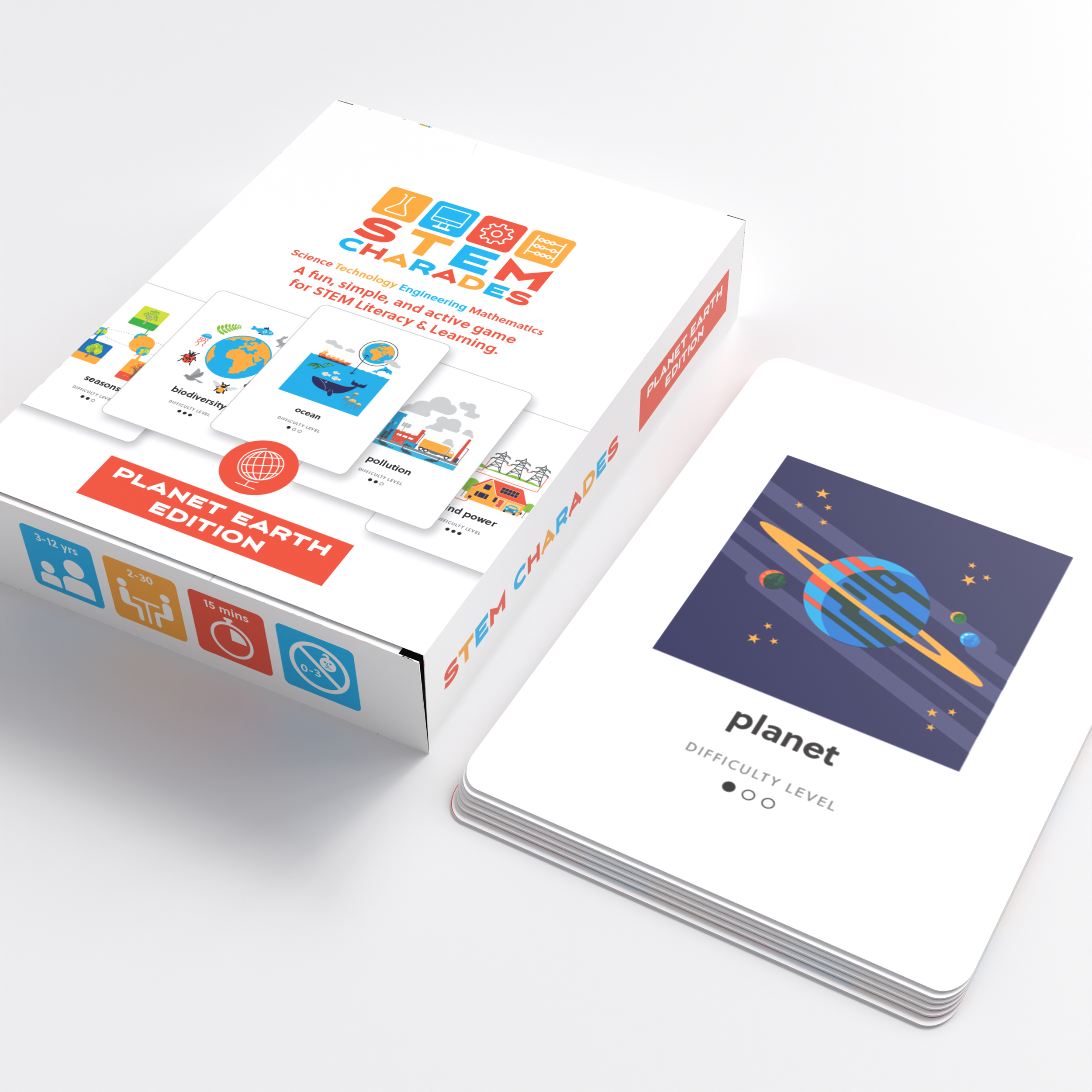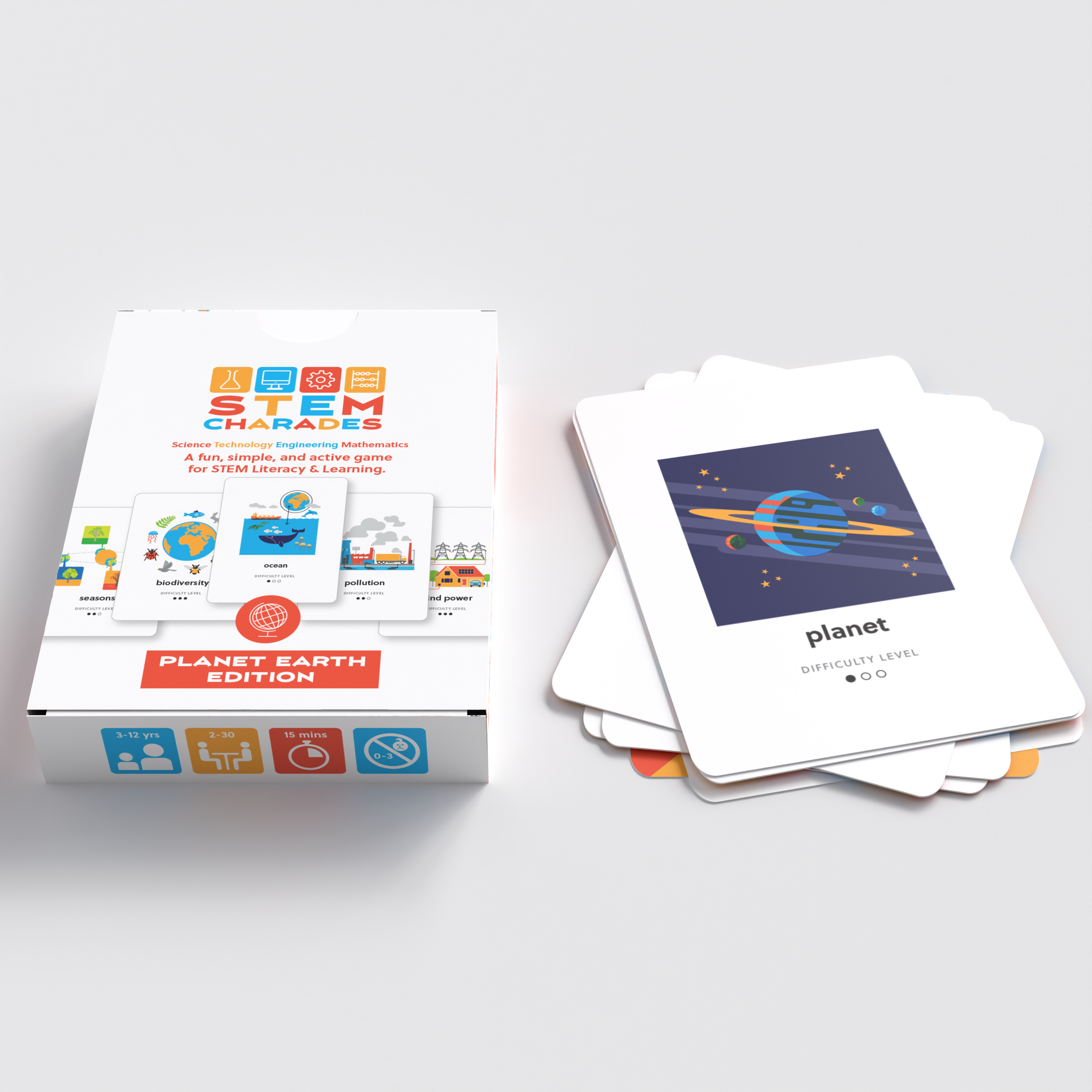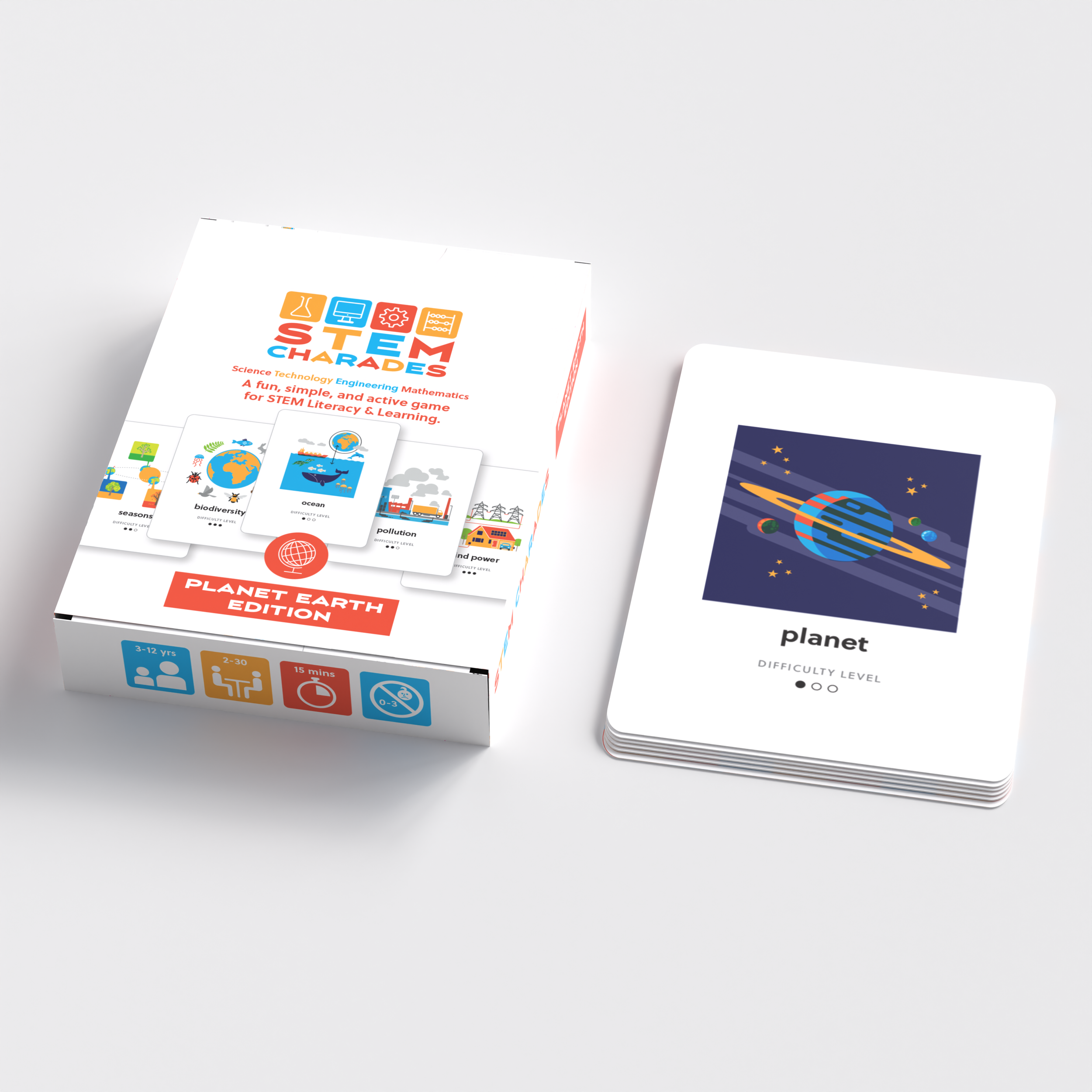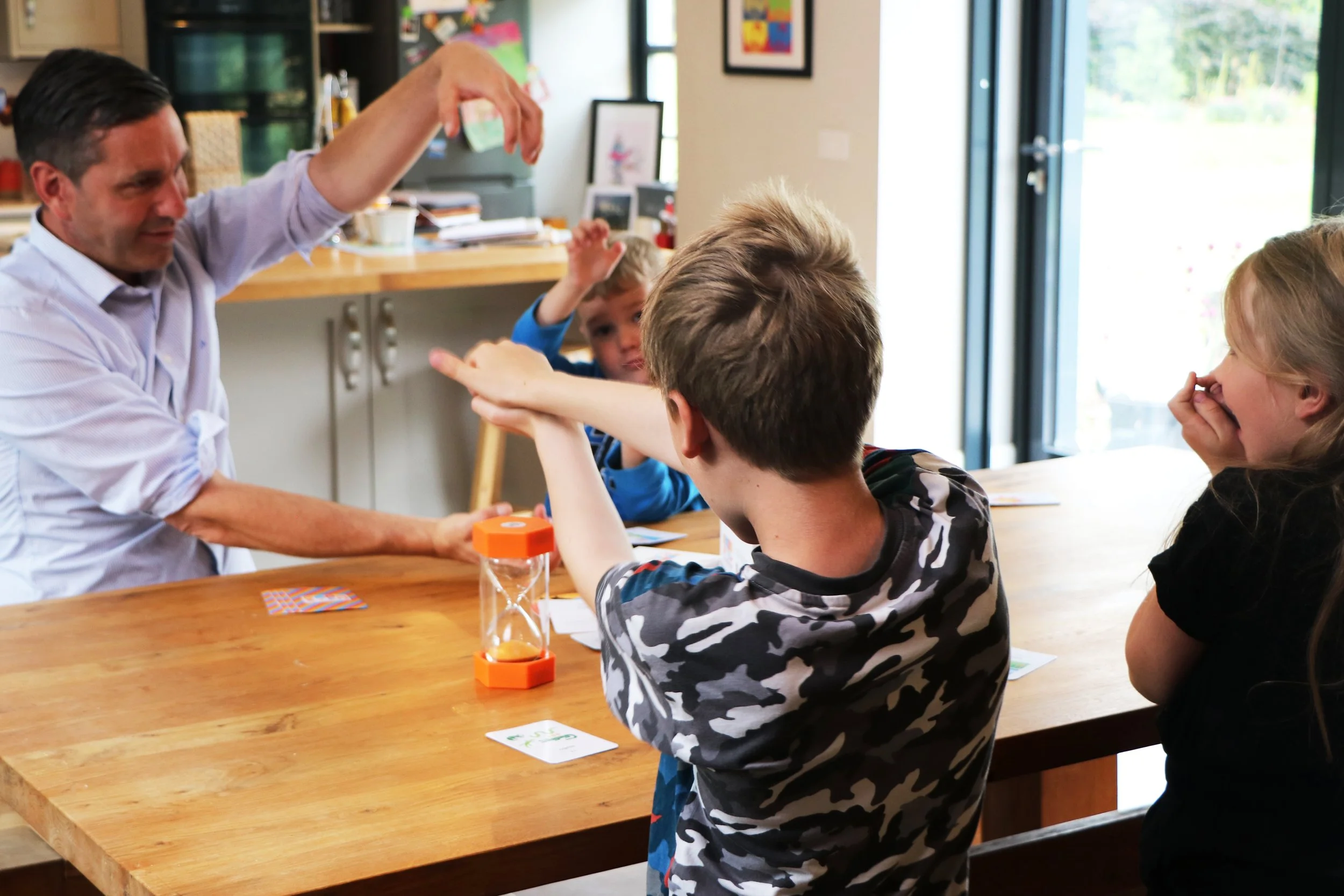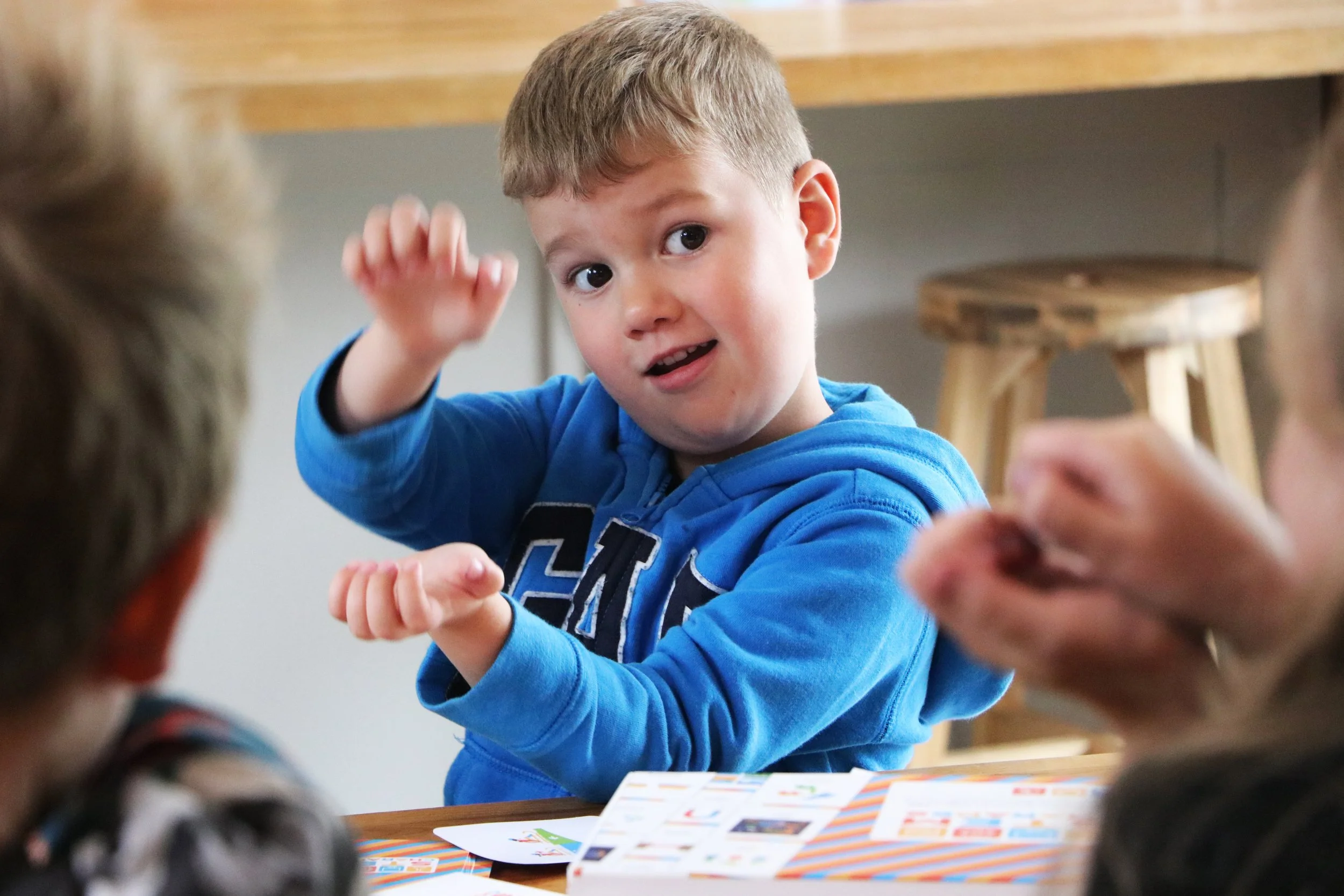Quick Start (2–5 minutes)
1. Pick a card (don’t show it).
2. Choose the communication mode — TALK ONLY / GESTURES ONLY / BOTH.
3. Act out or explain the idea while others guess.
4. Reveal the card and discuss what worked.
5. Swap roles and repeat. Variations: pair‑work, whole‑class teams, or timed rounds.
FAQs
How long does a session take?
5–15 minutes for a starter; 20–30 minutes for a full session.
Do I need any equipment?
No — just the Planet Earth Pack. Optional: STEM Charades spinner (included in the Starter Box).
Is this suitable for mixed‑ability classes?
Yes. The different play modes support access for all learners and encourage clear explanations.
Does it align with the curriculum?
Yes. Covers KS2 Earth science outcomes (climate change, habitats, processes) and supports speaking & listening.
Which science topics are covered?
Climate change, habitats, and natural processes — all linked to KS2 science outcomes.
Backed by research
Embodied Learning and gestures based game-play helps children connect words to concepts, making explanations clearer and easier to remember. This approach comes from research led by Professor Andrew Manches at the University of Edinburgh, which studies how movement and gesture support children’s learning


